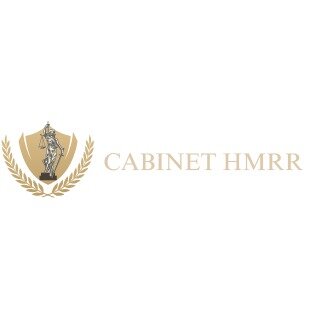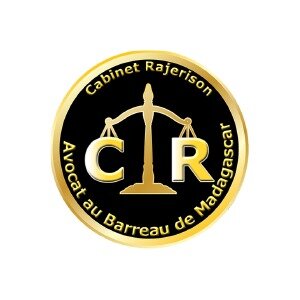Best Employment & Labor Lawyers in Madagascar
Share your needs with us, get contacted by law firms.
Free. Takes 2 min.
Or refine your search by selecting a city:
List of the best lawyers in Madagascar
About Employment & Labor Law in Madagascar
Employment and labor law in Madagascar is centered on regulating the relationship between employers and employees. It covers various aspects including employment contracts, workplace conditions, wages, health and safety at work, social security policy, and workers' rights. Governed primarily by the Labor Code, which is periodically updated to reflect socio-economic changes, Madagascar's employment laws aim to maintain harmony in the labor sector and protect workers’ rights while encouraging employment and economic growth.
Why You May Need a Lawyer
There are various situations in which you might require legal assistance in the field of employment and labor in Madagascar. Common scenarios include unjust dismissals, disputes over contractual terms, workplace discrimination, and negotiations of employment contracts. Employees might also need guidance on employment benefits, safety at work, or if there are breaches of labor law regulations by the employer. Employers, on the other hand, might seek legal advice for drafting contracts, navigating labor disputes, and ensuring compliance with local labor laws.
Local Laws Overview
The key aspects of local laws relevant to employment and labor in Madagascar include:
- Labor Contracts: Employees should have a written contract specifying the terms and conditions of employment.
- Working Hours: The standard workweek in Madagascar is typically 40 hours. Overtime is regulated and must be compensated accordingly.
- Minimum Wage: The government periodically sets a minimum wage to protect workers from exploitation.
- Health and Safety: Employers are required to ensure a safe working environment and comply with health and safety standards.
- Social Security: Both employers and employees contribute to the national social security system, providing benefits for health, maternity, and pension.
- Employee Rights: Workers have the right to unionize, strike, and receive fair treatment, including equal pay for equal work.
Frequently Asked Questions
What are the standard working hours in Madagascar?
The standard working hours are usually 40 hours per week. Overtime work must be compensated at a higher rate as per the labor code.
Is a written labor contract mandatory?
Yes, having a written labor contract is essential, detailing employment terms such as job duties, salaries, working hours, and other conditions.
What are my rights if I am unfairly dismissed?
If you face unjust dismissal, you have the right to challenge the termination legally with the potential to be reinstated or receive compensation.
Are employers required to grant maternity leave?
Yes, female employees are entitled to maternity leave, which is generally set at 14 weeks with a portion covered under social security benefits.
Can I join a union?
Yes, employees have the right to join and form trade unions to protect their interests and rights.
What should I do if I face workplace discrimination?
You should document the incidents and consider seeking legal advice to file a complaint with relevant legal authorities or tribunals.
How is the minimum wage determined?
The government periodically adjusts the minimum wage considering the economic conditions to ensure workers can earn a fair living wage.
What contributions are required for social security?
Both employers and employees contribute to the Caisse Nationale de Prévoyance Sociale (CNAPS) for coverage including pension and healthcare.
What is the process for resolving labor disputes?
Disputes can be resolved through conciliation, arbitration, or labor courts. Engaging a lawyer may be beneficial to navigate this process.
What is the legal process if I have a grievance against my employer?
Begin with internal resolution such as negotiation, then proceed to official bodies like the labor inspectorate or seek legal counsel for court action.
Additional Resources
There are several resources and organizations that can provide assistance:
- Ministry of Labor, Employment, and Social Laws: Offers regulations and oversight on employment and labor issues.
- Caisse Nationale de Prévoyance Sociale (CNAPS): Provides information related to social security and benefits.
- L'Inspection du Travail: This body oversees compliance with labor laws and can handle workplace complaints.
- Trade Unions: Offer support, advice, and representation for workers on employment rights issues.
Next Steps
If you need legal assistance in employment and labor matters, consider the following steps:
- Consult with a specialized employment lawyer who understands Madagascar labor laws.
- Reach out to relevant governmental or non-governmental bodies for guidance and support.
- Prepare documentation of any employment issues, such as contracts, correspondence, or incident records.
- Consider mediation or arbitration as initial steps before pursuing legal action in courts.
Lawzana helps you find the best lawyers and law firms in Madagascar through a curated and pre-screened list of qualified legal professionals. Our platform offers rankings and detailed profiles of attorneys and law firms, allowing you to compare based on practice areas, including Employment & Labor, experience, and client feedback.
Each profile includes a description of the firm's areas of practice, client reviews, team members and partners, year of establishment, spoken languages, office locations, contact information, social media presence, and any published articles or resources. Most firms on our platform speak English and are experienced in both local and international legal matters.
Get a quote from top-rated law firms in Madagascar — quickly, securely, and without unnecessary hassle.
Disclaimer:
The information provided on this page is for general informational purposes only and does not constitute legal advice. While we strive to ensure the accuracy and relevance of the content, legal information may change over time, and interpretations of the law can vary. You should always consult with a qualified legal professional for advice specific to your situation.
We disclaim all liability for actions taken or not taken based on the content of this page. If you believe any information is incorrect or outdated, please contact us, and we will review and update it where appropriate.
Browse employment & labor law firms by service in Madagascar
Madagascar Attorneys in related practice areas.
Browse employment & labor law firms by city in Madagascar
Refine your search by selecting a city.










